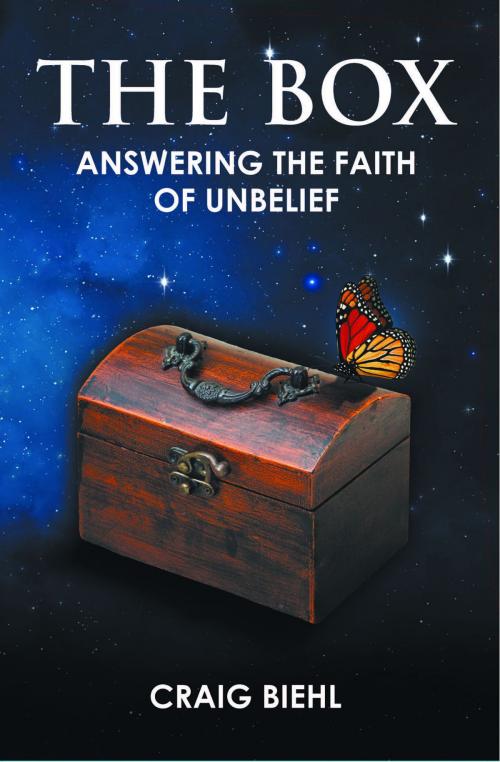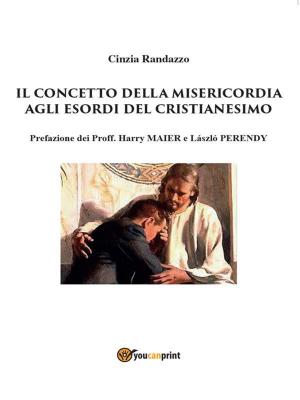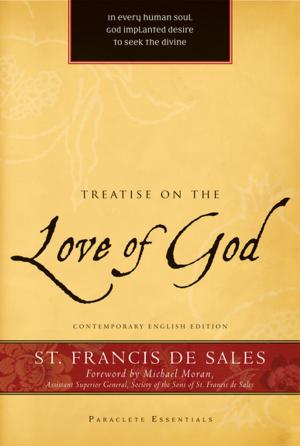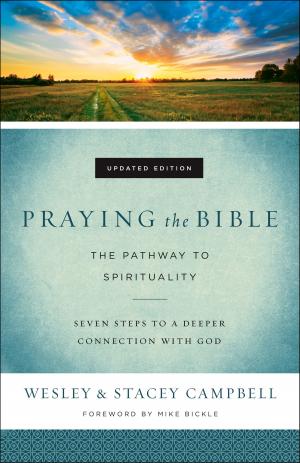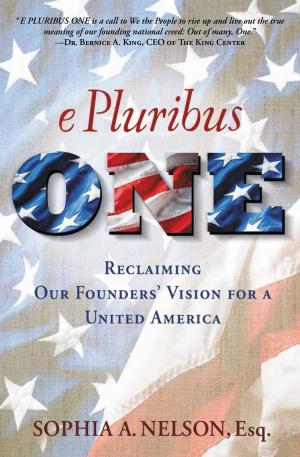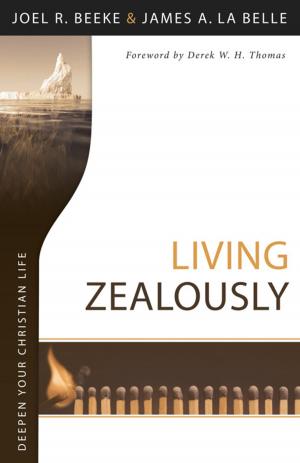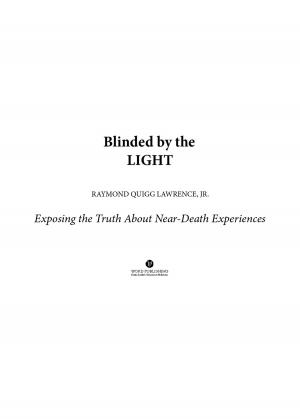| Author: | Craig Biehl | ISBN: | 9780990666684 |
| Publisher: | Pilgrim's Rock Press | Publication: | November 10, 2014 |
| Imprint: | Language: | English |
| Author: | Craig Biehl |
| ISBN: | 9780990666684 |
| Publisher: | Pilgrim's Rock Press |
| Publication: | November 10, 2014 |
| Imprint: | |
| Language: | English |
Mr. A’s nightmare was small potatoes compared to Mr. C’s little antique box. Why did Mr. A convert from being a confident atheist to a rather non-committal agnostic? That Mr. C didn’t fit the stereotype of an ignorant hypocrite bothered Mr. A, but why does he now doubt his once unflinching ability to make reasonable claims about the existence of God? He is even nervous about a possible afterlife. The little brown box had shaken him to the core. Was he really a man of faith, and blind unjustified faith at that? Intending to pull weeds, Mr. A sat on a pile of dirt contemplating the meaning of his life. Leaving Mr. A for a moment, imagine happy young Christians prancing off to college to find everything they hold dear mocked and dismissed as nonsense. “Jonah in a whale? Humanity saved in an ark?” And with a raising of an eyebrow and peering over the eye glasses, “you don’t reeeally take the Bible literally, do you?” It can be a bit intimidating. Imagine four concentrated years of this from professors and classmates. Can the joy, assurance and faith of believers survive and even thrive in such an environment? Can our own joy, assurance, and faith survive and thrive in the sea of unbelief that surrounds us? Atheists and agnostics pride themselves on being reasonable and scientific while viewing Christian faith as blind and unreasonable. But could the opposite be true? Could Christian faith be neither blind nor unreasonable while the best arguments of atheism and agnosticism rest on unsupportable assumptions of faith? Moreover, could the toughest arguments against faith in Christ become the catalyst for stronger joy, assurance, and faith in Christ as we recognize the blind and unreasonable faith of unbelief in the best of its proponents? Indeed they can. Arguments rest on basic assumptions, and arguments built on false assumptions produce faulty conclusions, regardless of the sophistication of the argument. For instance, what must someone know to legitimately claim that God does not exist? Answer: everything about everything in the universe and beyond. Unjustified faith in one’s ability to make “authoritative” assertions about things that cannot be known without infinite knowledge or direct revelation from God underlies all atheistic arguments. What about arguments against the possibility of biblical miracles? Given that God has infinite power to create, order, and sustain all things, and given that He cannot be limited by the laws He created and upholds, one must presume that He does not exist to deny biblical miracles. But again, what must someone know to legitimately claim that God does not exist? Answer, everything about everything in the universe and beyond. Every denial of the possibility of biblical miracles rests on an unreasonable, unjustified, and easily refutable assumption of faith. Indeed, anyone who cannot know the contents of Mr. C’s rosewood box without looking inside it cannot possibly know that God does not exist or that He is limited by the universe He created. All arguments against the existence and nature of God, whether the “problem of evil” or the impossibility of the Trinity, can easily be exposed as resting on same unreasonable assumptions of blind faith. When Christians learn to identify these assumptions, they are not only equipped to refute the most difficult arguments of unbelief, they will be encouraged in their faith in Christ and Scripture, and inoculated against intimidating arguments that would steal their joy and assurance.
Mr. A’s nightmare was small potatoes compared to Mr. C’s little antique box. Why did Mr. A convert from being a confident atheist to a rather non-committal agnostic? That Mr. C didn’t fit the stereotype of an ignorant hypocrite bothered Mr. A, but why does he now doubt his once unflinching ability to make reasonable claims about the existence of God? He is even nervous about a possible afterlife. The little brown box had shaken him to the core. Was he really a man of faith, and blind unjustified faith at that? Intending to pull weeds, Mr. A sat on a pile of dirt contemplating the meaning of his life. Leaving Mr. A for a moment, imagine happy young Christians prancing off to college to find everything they hold dear mocked and dismissed as nonsense. “Jonah in a whale? Humanity saved in an ark?” And with a raising of an eyebrow and peering over the eye glasses, “you don’t reeeally take the Bible literally, do you?” It can be a bit intimidating. Imagine four concentrated years of this from professors and classmates. Can the joy, assurance and faith of believers survive and even thrive in such an environment? Can our own joy, assurance, and faith survive and thrive in the sea of unbelief that surrounds us? Atheists and agnostics pride themselves on being reasonable and scientific while viewing Christian faith as blind and unreasonable. But could the opposite be true? Could Christian faith be neither blind nor unreasonable while the best arguments of atheism and agnosticism rest on unsupportable assumptions of faith? Moreover, could the toughest arguments against faith in Christ become the catalyst for stronger joy, assurance, and faith in Christ as we recognize the blind and unreasonable faith of unbelief in the best of its proponents? Indeed they can. Arguments rest on basic assumptions, and arguments built on false assumptions produce faulty conclusions, regardless of the sophistication of the argument. For instance, what must someone know to legitimately claim that God does not exist? Answer: everything about everything in the universe and beyond. Unjustified faith in one’s ability to make “authoritative” assertions about things that cannot be known without infinite knowledge or direct revelation from God underlies all atheistic arguments. What about arguments against the possibility of biblical miracles? Given that God has infinite power to create, order, and sustain all things, and given that He cannot be limited by the laws He created and upholds, one must presume that He does not exist to deny biblical miracles. But again, what must someone know to legitimately claim that God does not exist? Answer, everything about everything in the universe and beyond. Every denial of the possibility of biblical miracles rests on an unreasonable, unjustified, and easily refutable assumption of faith. Indeed, anyone who cannot know the contents of Mr. C’s rosewood box without looking inside it cannot possibly know that God does not exist or that He is limited by the universe He created. All arguments against the existence and nature of God, whether the “problem of evil” or the impossibility of the Trinity, can easily be exposed as resting on same unreasonable assumptions of blind faith. When Christians learn to identify these assumptions, they are not only equipped to refute the most difficult arguments of unbelief, they will be encouraged in their faith in Christ and Scripture, and inoculated against intimidating arguments that would steal their joy and assurance.
